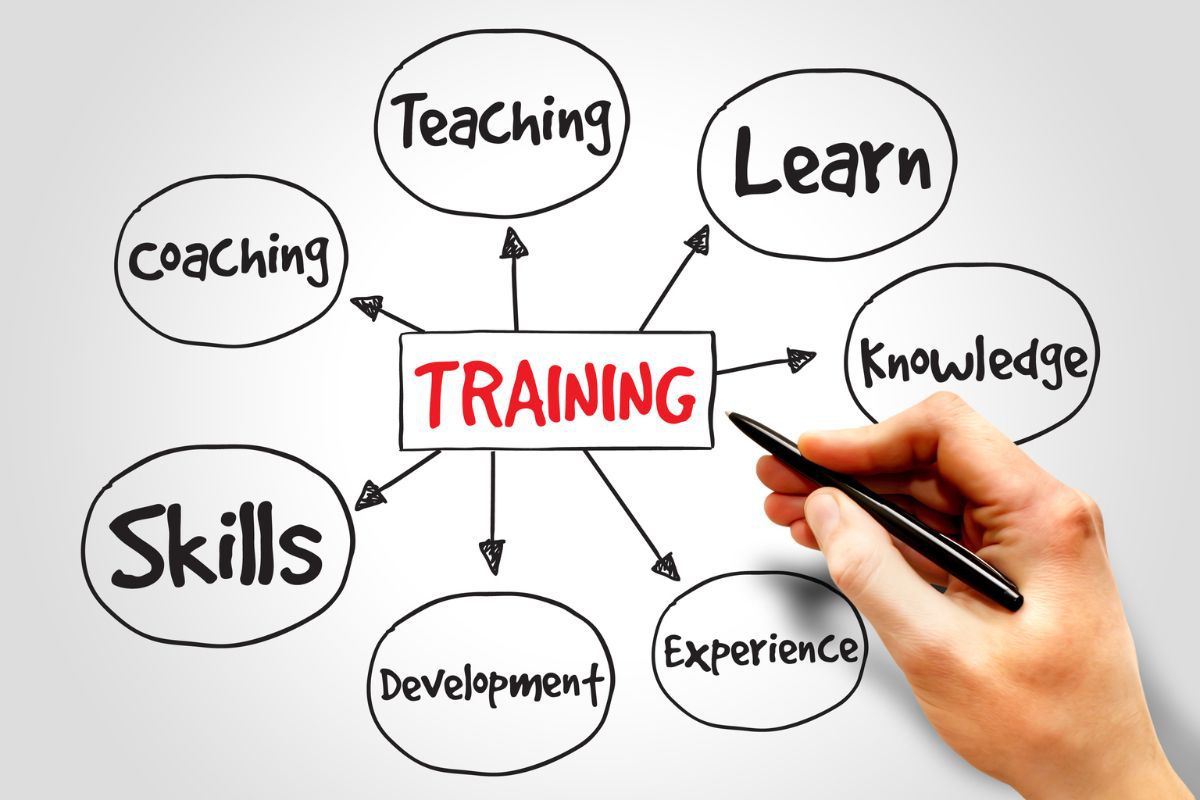This post was written by Jeremy O’Neill, a member of the INCM Blog team.
When it comes to training children’s ministry volunteers, what essential skills does anyone teach?
We know it’s vital to train volunteers so that they can effectively communicate God’s word and work with kids in grace-filled and healthy ways.
But anyone who has started in kids ministry knows, there’s probably a sweet spot on what is necessary, and what can be learned along the way.
Where I Began
On my first day volunteering, I was just thrown into a classroom. (Has anybody else been there?)
No one told me how to get the kids’ attention, what to do when they misbehave or how to use the curriculum.
I had to figure it out on my own.
So when I finally had a team of my own, I went a little overboard with their training.
Before a new volunteer had even experienced a service, I would go through all kinds of scenarios to make sure they felt prepared for their first day.
The problem was, it was too much, too soon.
I learned the hard way that sometimes people need to see things for themselves before they are ready to receive instruction.
They may not care much about classroom management now, but wait until their kids are out of control and can’t even get through their lesson.
Then they will be begging you for the advice!
I don’t want to make my volunteers beg for help but I also don’t want to invest time in training that they won’t retain.
That’s why our team found a happy medium.
What We Did
When a new volunteer would join our team, we’d ask them to observe at least one service in a classroom.
We treated it like a test drive.
They were able to see what volunteering was really like and it also helped them figure out which age group they prefer.
The real breakthrough was when we gave them an Observation Sheet.
On that page, we listed eight things that make kids’ ministry leaders successful on a Sunday morning.
Next to each topic, we left room for them to write down some things they noticed during the service.
In a sense, we were able to help them be their own teachers.
We gave them specific things to look for that they could spot in a real service.
Instead of explaining each topic in detail, we intentionally framed it as a prompt where they could find the answers for themselves.
After they had a chance to observe, we would debrief them to hear about what they learned.
They were able to ask specific questions and we could share practical tips for next time.
Oftentimes, these conversations were the most helpful part of their training.
Here are the eight essential skills that we highlight for every new volunteer on their Observation Sheet.
1. MAKING THE MOST OF YOUR SPACE
Physical environments play a huge part in setting the tone for your group.
Everything from the layout of tables and chairs to where the kids sit for the Bible story plays a part in the overall feel and flow of the group.
What did you see the leader doing to make the most of their space?
Pro Tip for Children’s Pastors: Whenever possible, lay out your room so that there is a specific area for each part of your programming.
You want your kids to think, “This is where we play.” Or, “This is where we hear the Bible story.”
If you can preserve each of those zones for a specific purpose, kids will be able to switch gears from playing to sitting much more easily and will be more likely to engage in the way you want them to for each part of your service.
2. THE IMPORTANCE OF COMING PREPARED
There’s a big difference when you show up to something that is well thought out and something that isn’t.
You can usually tell if someone took the time to think about what they wanted an experience to look and feel like.
How did the leader’s level of preparedness affect how the group went?
3. GETTING THEIR ATTENTION
If you couldn’t tell already, kids get distracted quite easily.
Keeping kids focused is an art form.
What did you see the leader doing to get and keep the attention of their kids?
4. MAKING IT MEMORABLE
Presentation is everything.
Things like the voice you use, the expressions you make, and the objects/examples you use go a long way in making something memorable to a kid.
What did you see the leader doing to lead their group in a creative and engaging way?
5. LEADING BY EXAMPLE
Kids generally care more about what they see you doing than what they hear you saying.
Sometimes the most helpful thing you can do for a kid is to show them what God is doing in your own life.
In what ways did you see the leader focus on “showing” and not just “saying”?
6. PUTTING THEIR FAITH INTO ACTION
The difference between childcare and church is spiritual growth.
Every time we gather our kids together, we want to help them connect the dots and figure out what God is trying to teach us.
What did you see the leader doing to help kids apply what they learned to their own lives?
7. RESPONDING TO DISTRACTIONS
Every now and then, a kid in your group might act out in one way or another.
Was there anything that came up during service? If so, how did the leader approach it?
8. BUILDING RELATIONSHIPS
We want to give kids a place to belong.
The first step is helping kids connect with each other and with their leader.
What did you see the leader doing to create a highly relational environment?
Conclusion
Our team chose these eight essential skills to highlight for new volunteers.
It has been really effective in helping our volunteers keep working on their training through self-reflection.
But your list might look very different.
If you narrowed down the most important skills for new volunteers to learn, what would they be?
Consider trying out your own ministry observation sheet.
It might be invaluable to help volunteers grow in these essential skills without a major training event.

About Jeremy
Jeremy O’Neill is the Children’s Pastor at Skyline Church. Jeremy is a speaker, writer, and kid’s ministry coach. He and his wife, Kendall, are based out of San Diego, California.






